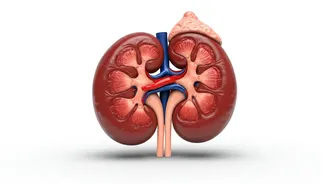Balanced Dietary Habits
Nourishing your body with a balanced diet is fundamental for kidney health. This entails making informed food choices that support kidney function and
overall well-being. A balanced diet should include a variety of nutrients and should be devoid of excessive amounts of sodium, phosphorus, and potassium as these can potentially strain the kidneys. Focus on incorporating fruits, vegetables, whole grains, and lean proteins into your daily meals. Limiting processed foods, sugary drinks, and unhealthy fats can also significantly benefit kidney health. Consulting a healthcare professional or a registered dietitian can provide personalized guidance tailored to individual dietary requirements and health conditions, ensuring a well-rounded and kidney-friendly eating plan.
Control Blood Sugar
Maintaining stable blood sugar levels is a cornerstone of kidney health. When blood sugar levels remain consistently elevated, they can inflict damage to the delicate blood vessels within the kidneys, a condition known as diabetic nephropathy. This damage can progressively impair the kidneys' ability to filter waste and excess fluids from the blood. For individuals with diabetes, regular monitoring of blood sugar levels is critical, as is adhering to prescribed medications and lifestyle adjustments. Dietary modifications, incorporating regular physical activity, and maintaining a healthy weight are all crucial strategies in preventing and managing high blood sugar. Effective blood sugar management is not only vital for kidney health but also contributes to overall well-being and reduces the risk of long-term complications associated with diabetes.
Blood Pressure Management
Effectively managing blood pressure is essential for preserving kidney function. High blood pressure, or hypertension, is a significant risk factor for kidney disease, as it can damage the blood vessels within the kidneys, impairing their ability to filter waste. Regular monitoring of blood pressure is a crucial step in early detection and management. Lifestyle modifications such as adopting a low-sodium diet, engaging in regular physical activity, and maintaining a healthy weight can help in controlling blood pressure. In some cases, medication may be necessary to bring blood pressure within a healthy range. Consistent management of blood pressure not only safeguards kidney health but also reduces the risk of cardiovascular diseases, contributing to a longer and healthier life. Regular check-ups with a healthcare provider can provide guidance and support in managing blood pressure effectively.
Stay Physically Active
Embracing a physically active lifestyle offers significant advantages for kidney health. Regular exercise not only helps maintain a healthy weight but also contributes to the regulation of blood pressure and blood sugar levels, both crucial for kidney function. Physical activity can take many forms, from brisk walking and jogging to swimming or cycling. Aim for at least 150 minutes of moderate-intensity exercise per week, spreading it throughout the week. Incorporating exercise into your daily routine can enhance overall well-being, boost energy levels, and promote better kidney health. Consult a healthcare professional before starting any new exercise program, particularly if you have any underlying health conditions. By making physical activity a consistent part of your life, you're investing in the longevity and optimal function of your kidneys, while also boosting your overall health.
Avoid Harmful Substances
Protecting your kidneys involves avoiding substances that can impair their function. Smoking, for example, can damage blood vessels, including those in the kidneys, potentially leading to reduced kidney function. Excessive alcohol consumption can also place undue stress on the kidneys, increasing the risk of kidney disease. It is wise to limit alcohol intake and avoid smoking entirely. The kidneys are also susceptible to damage from certain medications, particularly nonsteroidal anti-inflammatory drugs (NSAIDs). It's crucial to use these medications judiciously and consult a healthcare professional regarding any potential risks. By refraining from harmful substances and practicing caution with medications, you're proactively safeguarding the health and longevity of your kidneys, allowing them to function optimally and contribute to your overall well-being.
















